
The United States Preventive Services Task Force issued a statement reaffirming its 2004 recommendation against screening for pancreatic cancer in asymptomatic adults.

Your AI-Trained Oncology Knowledge Connection!


The United States Preventive Services Task Force issued a statement reaffirming its 2004 recommendation against screening for pancreatic cancer in asymptomatic adults.

Negative trial findings suggest immune checkpoint inhibitors may not be the best type of immunotherapy to treat pancreatic cancer.
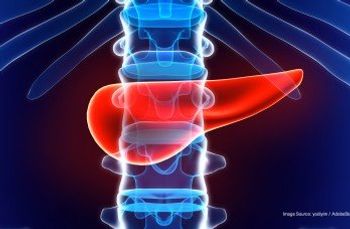
Data presented at ASCO 2019 suggest that a PARP inhibitor yields a clinically meaningful improvement in PFS in metastatic pancreatic cancer patients with a germline BRCA mutation.
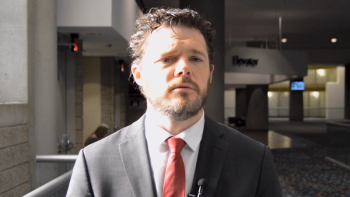
Cancer Network spoke with Mark H. O'Hara, MD, about the safety and efficacy of APX005M in combination with standard chemotherapy with or without nivolumab.
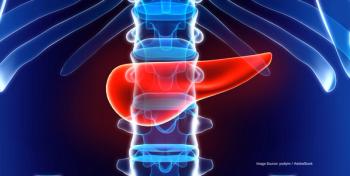
Investigators evaluated whether patients with pancreatic ductal adenocarcinoma benefit from adjuvant therapy after surgery if the tumor is smaller than 1 cm.

Radioguided surgery using gallium 68 dota peptides offers a highly sensitive method for detecting neuroendocrine tumors.

Study shows that ctDNA levels measured by targeted deep sequencing sensitively indicate the presence of cancer.
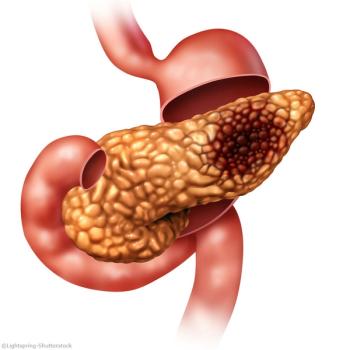
A team of Texas-based oncologists says their preclinical study results “demonstrate that IGF-1R and FOXC1 seem to positively regulate each other.”

“Tumor cell–intrinsic factors shape the tumor immune microenvironment and influence the outcome of immunotherapy,” the lead study author concluded.

When MUC4/X-overexpressing pancreatic cancer cells were transplanted into mice, tumors grew aggressively, with significant metastasis to liver and peritoneum.

In PREOPANC, the 2-year survival rate was significantly higher for patients who received neoadjuvant chemoradiotherapy vs standard care.

Compared with gemcitabine, mFOLFIRINOX improved outcomes for all endpoints when used in the adjuvant setting.

Previous studies found calcium channel blockers could prevent pancreatic cancer, but have neglected to consider the effects of short-acting CCBs.

In this interview we discuss preliminary results of the COMPASS trial, which used whole-genome sequencing and RNA sequencing to analyze the tumors of patients with advanced pancreatic ductal adenocarcinoma to identify possible first-line treatments.

The US Food and Drug Administration approved lutetium Lu 177 dotatate (Lutathera) for the treatment of somatostatin receptor–positive gastroenteropancreatic neuroendocrine tumors in adults.

ASCO clinical practice guidelines recommend resection followed by treatment with gemcitabine and capecitabine as the standard of care; however, neoadjuvant therapy is also considered an appropriate alternative.

Neoadjuvant therapy is an attractive approach with the promise of clinical benefit for patients with surgically resectable pancreatic cancer. However, clinical trial results in support of this approach remain unconvincing.

Researchers are proposing the consideration of expanding criteria for liver debulking in pancreatic neuroendocrine tumors to include a threshold of greater than 70% debulking, intermediate grade tumors, positive margins, parenchyma-sparing resections, and extrahepatic metastases.
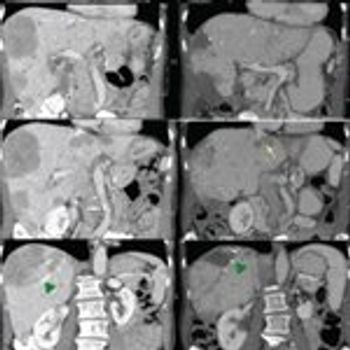
In this review, we focus on the treatment of well-differentiated early and metastatic PNETs, emphasizing current controversies, recent advances in therapy, and the multidisciplinary approach required for optimal treatment.

Germline mutations in pancreatic cancer susceptibility genes were commonly identified in a group of patients with pancreatic cancer who did not report a significant family history of cancer, according to the results of a single-center study.

This video reviews the conflicting data and perspectives regarding the use of radiotherapy in unresectable pancreatic cancer.

This video examines the role of immunotherapy in pancreatic cancer, highlighting the resistance to novel treatments in this setting and trials attempting to confront this problem.

This video examines the management of resectable pancreatic cancer, including how this type of disease is best defined, the latest standard of care in the adjuvant setting, and emerging trends in surveillance.

Adding PEGPH20 to nab-paclitaxel and gemcitabine improved progression-free survival in patients with untreated, metastatic pancreatic ductal adenocarcinoma.
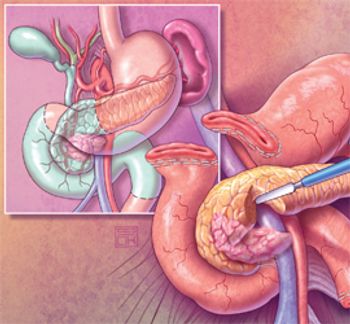
In this article we will discuss the definitions of resectability, describe the current diagnostic tests for pancreatic cancer, and review strategies for maximizing treatment outcomes in patients with resectable pancreatic cancer.